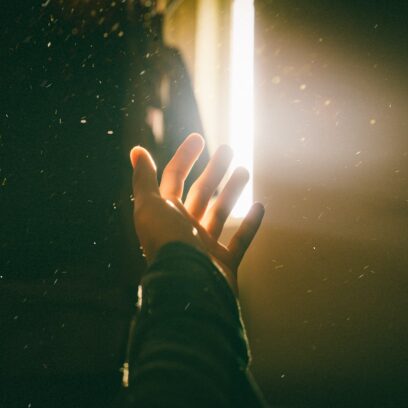You have no items in your cart. Want to get some nice things?
Go shopping
Ghostly by night, decrepit by day, the Hudson Almshouse still stands after more than 200 years. Poorhouse, Lunatic Asylum, Orphan & Relief Association, Female Academy, and lastly, public library, it’s a testament to then-progressive ideals, the duty to care for society’s cast-offs.
Or testament to cruelty? Hard to know. Listed on the National Register, the sprawling stone building on dreary-gray State Street will escape bulldozing, though its classical wooden columns flake like brittle paper.
Who will write this story? Welcome to history’s horror show—poverty’s shame, locked rooms, lashings? Or welcome to a time of aspiration years later, when it became a school, then library whose rooms were filled with desks and books, and honeyed light poured through windows tall as cathedral doors.
*
Why my attraction to this ruin? If the Almshouse symbolizes something in myself, I’m in trouble, drawn to the abandoned, beauty barely recognizable in neglect. Danger: Entry Forbidden. Do I dare trespass? Will a ghost admit me for a tour? No, just let me keep the memory of how the light that slanted through the slats of the elevated train tattooed my baby skin, and how the shifting light and shadows followed me and my mother home to our Harlem railroad flat.
*
After decades, I still recall the nightmare of a glaring, featureless room where my blood slowly, invisibly, was seeping from my body. I sat, not shackled but paralyzed. People in white stood by, silent, watching impassively as my life ebbed away.
*
Maybe that dream didn’t take place in a Lunatic Asylum, but a Poorhouse. When the self is erased, all is lost, banished to the House of Poor Me.
*
A Place for Orphans. With my father gone, I’m almost an orphan—as he was, sent upstate during the Depression to a rural home for boys like thousands of others during that time.
The ten-year-old baby of the family admitted as a ward of the state who spent Christmas Day in quarantine (fear of TB), a kid who knew only the Bronx.
Was that Sparkill home for orphans—100 miles south of the Hudson Almshouse–a “relief association”? Some were beaten on stage to set an example, dad said. Some sisters, he recalled, were very kind.
The dorms, baking house, and gym have been demolished. Only the vaguely Gothic chapel has been preserved—its doors unlocked only for special events. Behind the church, bright flags flutter over row on row of deceased nuns and children. Where are the once-indigent children of the Hudson Orphan and Relief Association?
*
Female Academy: and now I see myself as a teen, silent in the locker room, silent in the hallways between classes, silent in the cafeteria until the bell was rung. Hundreds of high school girls in loose-fitting maroon uniforms, following the rules, spending most of our days in a chilled citadel.
*
Books saved me and my father, the orphan who became a teacher. Always this struggle, the shadows and the books that bring you out of them. Not all books—some lured me into the forest and left me there after sunset, lost in the lair of the gruesome Brothers Grimm, the only book I ever returned to the library, unfinished.
But many more like the Wizard of Oz transported me from my choking-hot bedroom, lifted me away from the facing wall of small apartment windows.
Books made a home for me with their different kinds of light. Reading could trigger a flashbulb of sudden insight. Some books were like nightlights that gently guided me both night and day. Even quiet books with their faint wisps of light were signals, light slipping through a closed door in darkness to show the way out.
When the Hudson Almshouse-turned-public-library shut down, another library opened in town inside a converted, historic armory. Its books will never be abandoned like the Almshouse building that once held them. Faded and broken-spined, they’ll endure long after I’ve joined the spirits wandering the halls after closing time.
Maria Terrone
Maria Terrone’s debut essay collection, At Home in the New World (Bordighera Press), published in November 2018. Her nonfiction has appeared in media including Litro, Witness, Green Mountains Review, The Common, Briar Cliff Review, and Potomac Review. Also a Pushcart-nominated poet with work published in French and Farsi and in 25 anthologies, she is the author of the collections Eye to Eye; A Secret Room in Fall (McGovern Prize, Ashland Poetry Press); The Bodies We Were Loaned, and a chapbook, American Gothic, Take 2. In 2015, she became poetry editor of the journal Italian Americana.




